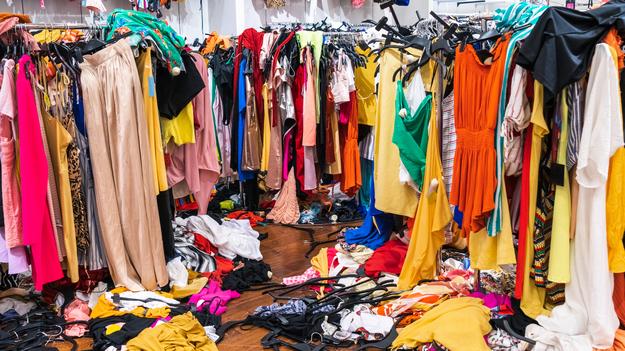
Eight years after the Rana Plaza disaster, the world's largest fashion companies have yet to agree to renew a long-term security agreement in Bangladesh. Yet for all the good the deal can do, companies like Zara and H&M are standing on the sidelines because of their direct responsibilities. Only five of the original signatories have signed so far, and the final deadline is August 31.
Brands' hesitance to commit has highlighted the responsibility of suppliers elsewhere in Asia, where an ambitious labor rights group is trying to hold global brands to account for alleged rights violations during the pandemic.
In a report first published by Britain's Guardian newspaper, Asian worker rights group the Asia Floor Wage Alliance (AFWA) has taken action legal proceedings against global fashion companies, including H&M and Levi's, for "wage theft" of supply chain garment workers during the coronavirus pandemic.
H&M is cited for alleged labor abuses in 2020 at a supplier factory, where the AFWA claims the brand "has complete economic control over the livelihood, skill and continuity of employment of workers."
The AFWA report states that the majority of garment workers in Sri Lanka, Pakistan, Indonesia, India, Cambodia and Bangladesh lost money to which they were legally entitled. It argues that the factories that employ these workers are not acting as independent suppliers, but rather as contract manufacturers, and that the brands that source from them should be viewed as joint employers and held accountable.
In a report titled “Money Heist”, the author questions whether the loss of income suffered by garment workers should be qualified as wage theft by the brands for which they produce the garments. AFWA explains that in the current situation, garment workers work to produce clothing for various brands in the Global North. However, they are not directly employed by these brands. Rather, workers are hired by suppliers from various countries in the Global South. These suppliers, however, are not independent manufacturers who produce garments and sell them on the world market. They are more like contract manufacturers. They produce the garments from the designs and specifications provided by the brands.

AFWA argues that if brands are the primary employers of supplier factory workers, they should have a responsibility to support suppliers and their workers in times of recession, take steps to support their stock value, including leading carry out share repurchases. However, the brands refused to assume or share any responsibility for the suppliers or their workers.
At the start of the pandemic, some brands refused to pay suppliers for orders already delivered, a move they only backed down after exposure in the international media threatened to undermine their reputations . This had a knock-on effect, as some suppliers did not pay wages to workers. Labor contractors went so far as to turn off their phones to prevent workers from asking for their pay, according to the report.
AFWA claims that business risks have been shifted to suppliers in the Global South and, in turn, to their workers. While the owners of the providers could probably have covered the cost out of their savings, the income of the workers was even below the poverty line, and that of the women workers was even below this line.
The Covid-19 pandemic exposed the undeniable truth about the extreme sweatshop labor that is a major feature of global apparel supply chains. The humanitarian crisis unleashed on garment workers in Asia due to the pandemic-induced recession was neither unforeseen nor inevitable. Rather, it was the direct consequence of the actions of global clothing brands located in the Global North, which make super-profits through the exploitation of workers in a "framework of uneven regional and national development, [and] a labor market uneven and segmented".
Currently, minimum wages in producing countries are set at extremely low levels that do not cover the cost of living, which is estimated by the Asia Floor Wage Alliance to be at least three times higher than minimum wages of garment workers.
The pandemic has prompted brands to respond quickly by taking aggressive action to preserve their colossal profits from the past and minimize any reduction in profits during the recession. These actions, in turn, have caused cascading effects in the labor practices of their suppliers towards the workers in their supply chains. Brands have imposed unilateral decisions, such as canceling orders without paying suppliers, and have used their influence to demand shorter delivery times, late payments, and deep discounts from suppliers. They have shown complete disregard for basic fairness and equity in their supply chains, forcing Asian suppliers to pass costs on to workers.
Accountability deficiencies in the current structure of global apparel supply chains have precluded the option for workers' agency and their unions to hold brands accountable. AFWA wants to re-establish this agency, bring unions into direct contact with brands, and claim accountability within the jurisdiction of their countries.
Article source: AFWA report "Money Heist: Covid-19 Wage Theft in Global Garment Supply Chains".
This article has previously been published on FashionUnited.UK, translated and edited into Spanish by Veerle Versteeg.